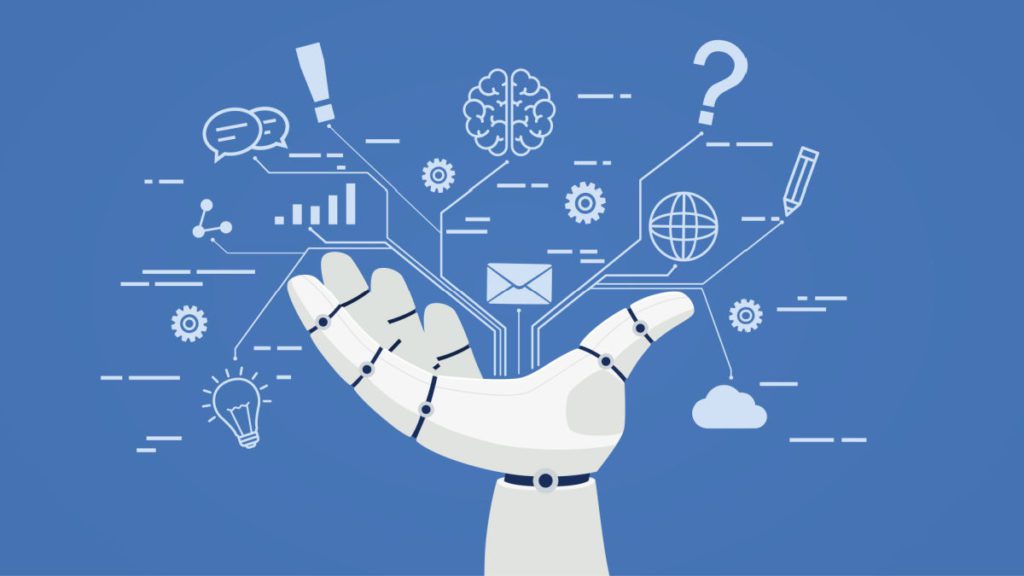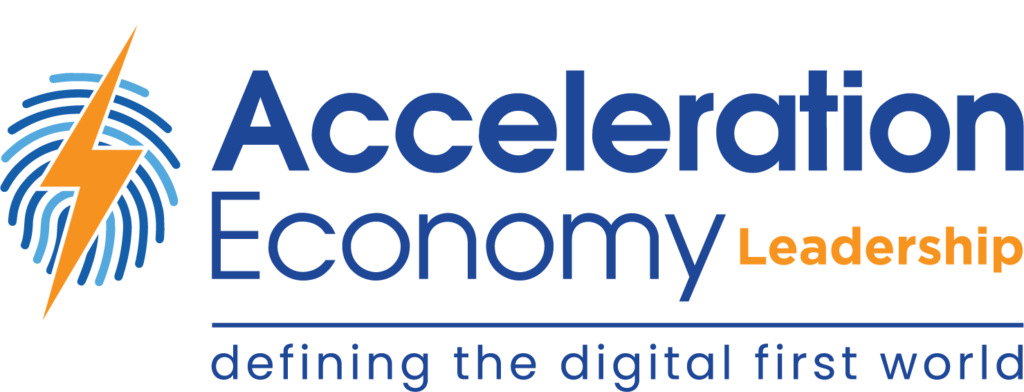In today’s digital-first, customer-centric world, the marketing function has the most to gain from artificial intelligence (AI). Marketing’s core value is understanding customer needs, matching those needs to develop and offer products and services, and ultimately helping prospects and customers purchase more of the right products — all capabilities that AI can dramatically enhance. So, let’s explore what’s going on with AI and marketing.
To set the table, there are two core promises of AI and marketing:
- AI automates everyday marketing tasks. For example, AI scales the collection and analysis of large sets of data to understand market and customer trends, powering pros to act on insights versus manual data manipulation. AI can also automate customer personalization, precision timely outreach, and placement of digital messages in ways that didn’t exist before.
- AI unlocks the possible with less effort. For example, AI generates info on audience or economic trends that impact marketing efforts, identifies new customer segments, creates new products and services, and expands revenue by helping make customer connections.
We thought it was also important to understand what market data and research is telling us about how marketers view AI. Here are a few takeaways from my conversations with AI experts, as well as from recent research by McKinsey, Deloitte, Salesforce.com, and CMO.com:
- 64% of B2B marketers consider AI to be valuable in their marketing strategy.
- 84% of marketers are using some form of AI, up from 29% in 2018.
- A 2020 Deloitte global survey of early AI adopters showed that three of the top five AI objectives were marketing-oriented: enhancing existing products and services, creating new products and services, and enhancing relationships with customers.
- 48% of marketing leaders cite AI as making the most significant difference in how customers interact with their companies and brands.
- 71% of e-commerce marketers use AI to provide a seamless experience and to gain deeper insights on their customers.
- 80% of marketers are using chatbots as part of their customer experience and engagement strategy.
- United States, India, Germany, and Canada are leading the way in AI marketing adoption.
No doubt AI marketing has momentum. Let’s dive into the top AI marketing trends and takeaways we are keeping an eye on.
Customers are open to brands using AI.
AI already powers hundreds of marketing-led use cases, which means it’s being relied on for customer, commerce/revenue, and service applications. It’s always a smart idea to do things and operate around things that our customers like and trust. In a recent McKinsey survey, 70% of customers state the trouble-free transfer of their info between individual channels and departments, as well as the adaptation of actions taken from previous interactions, is especially important to convince and trust a given brand.
That is why two-thirds of those people surveyed declared they are open to companies that use AI. It can significantly improve these processes and thus increase the level of service. Customers’ lack of trust is a significant hurdle that is being obliterated quickly.
Marketing is gaining confidence and trust in AI.
Marketing is embracing AI as a valuable tool and resource. While not exactly a “glass box” that is understood, AI is losing its rap as a “black box,” where historically the inner workings of AI tech, data, and processes were a mystery and seemed more like science fiction. In a 2021 Salesforce.com AI marketing survey, only 19% of marketers stated not trusting AI’s use in marketing and customer efforts.
Digging deeper, AI’s uncertainty stems from marketing’s mission to make more human connections using data strategically and precisely to automate connections and services. This hesitancy makes sense in the context of marketing’s expanded role in the B2B selling process. According to Forrester Research, customers report spending only 17% of their entire purchase process with sales reps. This customer-driven, marketing-led process is a big reason why AI is gaining widespread adoption across multiple marketing use cases.
Marketers embrace AI to turn data into insights and action.
Marketing has become a data-driven discipline. Understanding markets, aligning customer needs with products and services, uncovering and exploiting trends, and identifying where and how much to invest in marketing campaigns are just a few examples of the criticality of data for marketing.
Previously, much of the data aggregation and analysis was done via human efforts. This can be labor-intensive, error-prone, and a time- and resource-suck. With AI handling data aggregation and assembly, marketing can deploy its people and resources on turning data into insights and actions to positively impact the business. To emphasize impact, according to the research firm Aberdeen, companies identifying customer needs through AI-driven predictive analytics can increase their organic revenue by an average of 21% year over year, compared to an average of 12% without predictive analytics.
AI accelerates the customer journey.
You can’t go to a marketing conference or read a marketing article without seeing the words “customer” or “buyer journey.” Today, companies are deploying AI at every stage of the customer journey. When potential customers are in the “consideration” phase and researching a product, AI is used to deliver timely digital messages and to guide their search.
For example, consider e-commerce applications. AI is deployed to determine which customers are most likely to buy and, on the basis of their browsing histories, identify products to present to them. In the same motion, AI-powered bots are used to help marketers understand customers’ needs, increase buyer engagement, direct visitors to a specific web page, and, if needed, connect online shoppers to a human agent by chat, phone, video, or even screen share.
AI reduces manual work and automates complex tasks.
Because AI automates both manual work and complex tasks, it allows marketers to focus on more strategic work. No marketing pro went to school to be a spreadsheet manipulator or spend their days placing ads. Most importantly, the best marketing talent expects to have advanced tools and capabilities like AI to do their job well.
To amplify AI’s value for both efficiency and effectiveness, marketers are using AI to handle specific and tedious tasks such as digital ad placement and programmatic ad buying, assist with strategic work such as aligning products with the right customers at the right time, and support human efforts in more structured tasks such as customer service.
As a Chief Marketing Officer (CMO), finding marketing difference-makers is a significant consideration for me in hiring and assembling the right talent and organization. Marketing pros will move on quickly when work is not rewarding, especially in today’s talent wars and the great talent reshuffle that is taking place in marketing.
The bottom line on AI and marketing
The data tells the story — AI marketing is thriving and accelerating. While there’s much to figure out, including hiring talent to exploit AI, marketers believe AI has moved beyond science fiction, becoming a necessary capability to compete in today’s digitally driven, customer-focused world.
Want more tech insights for the top execs? Visit the Leadership channel:










